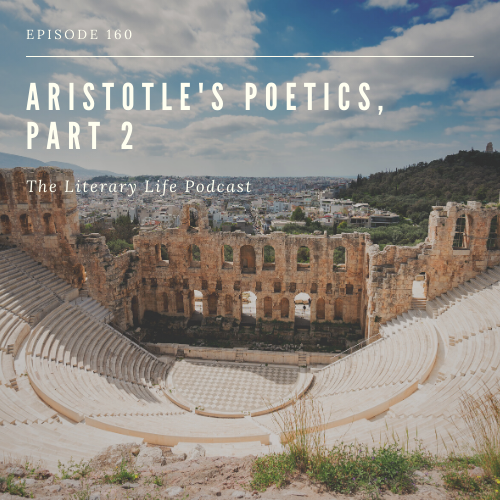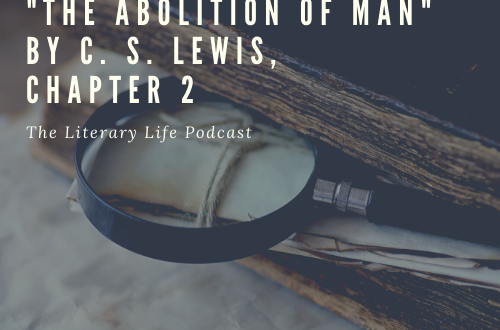
Episode 160: Aristotle’s “Poetics” Part 2
Angelina, Cindy, and Thomas are back on The Literary Life Podcast today with another discussion in our series on Aristotle’s Poetics. Sharing their commonplace quotes leads into the conversation about why reading this work still matters to our understanding of how to read literature. Thomas and Angelina talk about the problem of literary critics who claim Shakespeare violates Aristotle’s “rules” for plays. Cindy’s question as to why we read the ancients is another topic of this conversation.
Join us next time when we will have another Literary Life of… guest interview. Then we will be back the next week with a discussion of Plato’s Ion.
Thomas will be teaching a webinar on Jean Jacques Rousseau on February 24th. You can learn more and register at houseofhumaneletters.com.
Register now for our 5th Annual Literary Life Online Conference coming up in mid-April, Shakespeare: The Bard for All and for All Time. Get all the details and sign up today at houseofhumaneletters.com.
Episodes Mentioned Today:
The Trojan Women Series Introduction
Listen Now:
Commonplace Quotes:
The best way to get to know the world is to live in it. The next best is to break your leg and read Boswell’s “Life of Johnson” in bed.
Christopher Hollis, from Dr. Johnson
Sensible parents are often distressed at this want of conscience in children; but they are not greatly at fault; the mature conscience demands to be backed up by the mature intellect, and the children have neither the one nor the other. Discussions of the kind should be put down; the children should not be encouraged to give their opinions on questions of right and wrong, and little books should not be put into their hands which pronounce authoritatively upon conduct.
Charlotte Mason, from Home Education
The Classical emphasis, established in Aristotle is esthetic (“hieratic”) in the sense that it is focused on the thing made, and assumes an emotional balance or detachment which we see in such aspects of it as catharsis. The fundamental conception of this approach is that of “imitation,” which is concerned with the relation of the poem to its context in nature. The other emphasis…is psychological rather than esthetic, and is based on participation rather than on detachment. It thinks of a poem as an “expression,”…rather than as Aristotle’s techne or artifact, and its fundamental conception, corresponding to “imitation,” is “creation,” a metaphor which relates the poet to his context in nature.
Northrop Frye, from The Well-Tempered Critic
Sonnet 23
by William Shakespeare
As an unperfect actor on the stage
Who with his fear is put beside his part,
Or some fierce thing replete with too much rage,
Whose strength’s abundance weakens his own heart,
So I, for fear of trust, forget to say
The perfect ceremony of love’s rite,
And in mine own love’s strength seem to decay,
O’ercharg’d with burthen of mine own love’s might.
O, let my books be then the eloquence
And dumb presagers of my speaking breast,
Who plead for love and look for recompense
More than that tongue that more hath more express’d.
O, learn to read what silent love hath writ;
To hear with eyes belongs to love’s fine wit.
Support The Literary Life:
Become a patron of The Literary Life podcast as part of the “Friends and Fellows Community” on Patreon, and get some amazing bonus content! Thanks for your support!
Connect with Us:
You can find Angelina and Thomas at HouseofHumaneLetters.com, on Instagram @angelinastanford, and on Facebook at https://www.facebook.com/ANGStanford/
Find Cindy at morningtimeformoms.com, on Instagram @cindyordoamoris and on Facebook at https://www.facebook.com/cindyrollins.net/. Check out Cindy’s own Patreon page also!
Follow The Literary Life on Instagram, and jump into our private Facebook group, The Literary Life Discussion Group, and let’s get the book talk going! http://bit.ly/literarylifeFB
Subscribe to The Lit Life:








